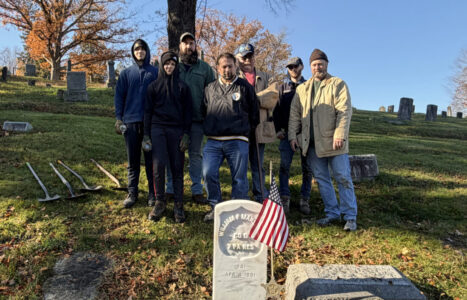Counselors dealing with substance abuse, mental health removing treatment barriers
Crossroads Counseling on East Third Street continues to remove barriers to treatment for people with substance abuse or in need of mental health care.
On Monday, Dr. Denise Feger, program director, told the Rotary Club of Williamsport that the service helps people in Lycoming, Clinton, Sullivan and Tioga counties.
The need remains great. On any given time of the year, the professionals there are seeing up to 3,000 individuals, she said.
When Feger began in the field 17 years ago, 10 to 15 counselors were available. Now, there are just shy of 74 counselors.
No longer insular, the team of counselors and professionals — in coordination with West Branch Drug and Alcohol Commission and UPMC Susquehanna — were awarded the Centers of Excellence Award from Gov. Tom Ridge for its work.
The watershed moment was a game-changer, eliminating barriers those in need had to access treatment and communicate with a member of the service.
Substance abuse and mental health needs know no age limit. Care is given to individuals ages 8 to 77, Feger said.
Appointment wait-time is down to no more than seven days, and those with and without health insurance are provided assistance to navigate a complex system of either outpatient or inpatient care.
The court advocated treatment programs are more actively involved in changing lives, she said. The social media, however, has created less interpersonal relationships, she said. The team is aware of individuals who have demonstrate potential to harm themselves and others, she said.
Moreover, the counselors can go to prison and help to decrease the amount of time an individual charged by the law has to be incarcerated in order to receive treatment.
The emergency room doctors at UPMC Susquehanna are prepared to transition individuals who may need a therapist or pyschiatrist, she said.
Through evidence-based results, the team is continuing to collect data on successes. While that is difficult to measure, success includes whether those receiving or who have received treatment are seeing the quality of their lives improvement based on the resources available, according to Feger.
That measurement is whether they were once homeless and now are finding a place to live, if they were not working and are gainfully employed and if they have taken steps to reunite with family.
Another positive about the city and region is the availability of public transportation, which eliminates the barrier of not being able to access the care at the facility.




